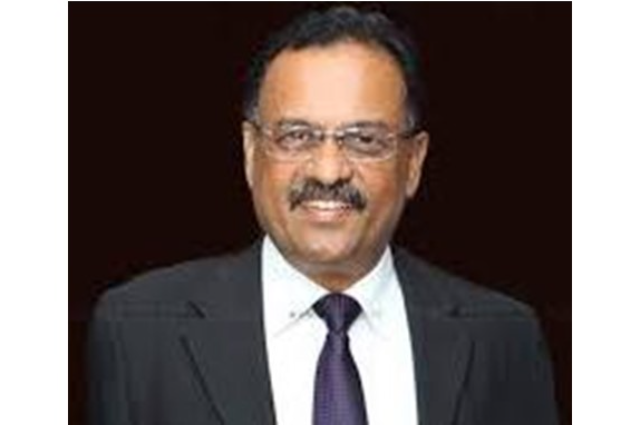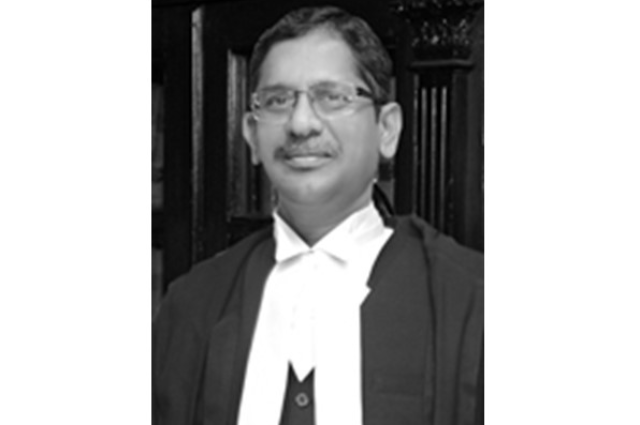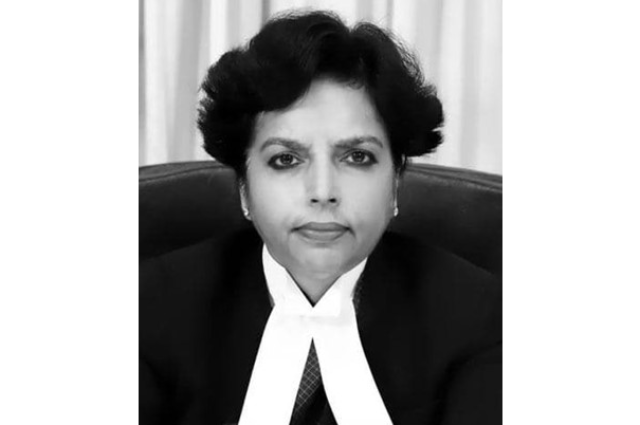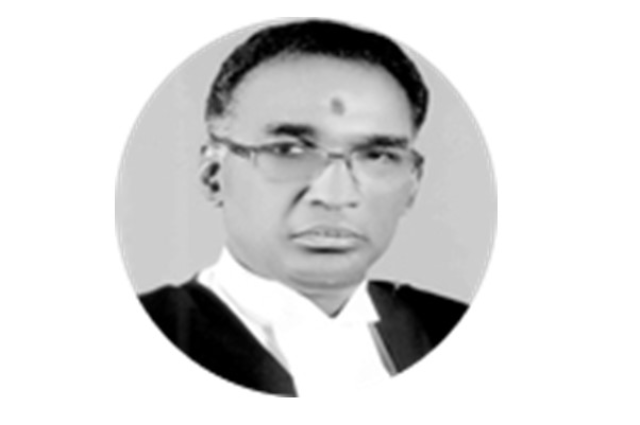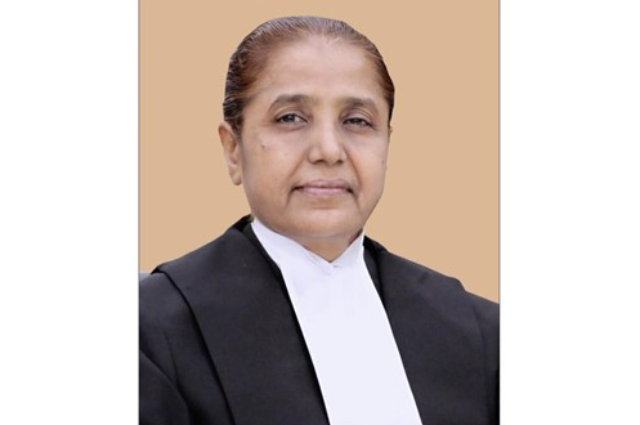Introduction
"Dissent is a safety valve of democracy. If you don't allow dissent, the pressure valve of democracy will burst" - Justice DY Chandrachud
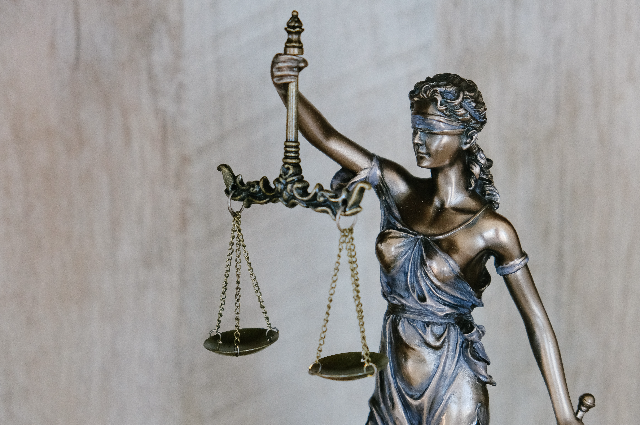
Source: Tingey Injury Law Firm on Unsplash
In layman's words, accessibility to justice implies accessing the courts and judicial institutions with as few difficulties as possible and as many routes as possible for seeking redress for any human rights violations. The right to access justice is viewed as a sine qua non in a democratic society. The responsibility that people are not being denied their rights & they are given equal opportunity to represent their case in courts is made by various judges sitting at various courts all over India - Subordinate courts, District courts, High courts & Hon'ble Supreme Court of India.
On one side, the judge holds a pen, while on the other, a book, with which they administer justice. To the wealthy and the poor, to those who have been marginalised by the society, to women and children, and before anybody who comes to the courtroom with an appeal. The entire court system is built around such a basic and simple method. It's a lonely job. Judges have no one with whom they can discuss their cases. The judge is finally alone after the lawyers have finished speaking and leaving the courtroom with a lengthy reference list. They have been physically tired, but they don't have time to waste.
A judge is empowered to administer justice. The appointment is subject to certain guidelines. By the position, the judge gains established authority over what they can and have to do, as well as what they cannot. The book the judge is holding is a legislation established by the legislature that outlines the measures they must perform before delivering their decision. In the book she carries, the offences and punishments are clearly specified. To receive justice, petitioners must appear before a judge, and they should be handled equitably. For a judgement to be made, they should be addressed and the other side must respond. In this blog, we will be exploring struggles and challenges in the legal fraternity that various judges have faced in their journey.
Hon'ble Mr. Justice Rajendra Menon
Mr. Justice Rajendra Menon was born in Jabalpur, Madhya Pradesh, and graduated from N.E.S Law College in Jabalpur in 1981. From August 2018 to August 2019, he held the prestigious position of Chief Justice of the Delhi High Court.
Legal career & clients represented in the bar:
The Lordship began his legal career as a student of eminent Senior Advocate P. Sadasivan Nair. He was also the Central Government's Standing Counsel until his appointment to the Bar in 2002. South Eastern CoalFields Ltd., Northern Coalfields Ltd., Western Coalfields Ltd., Syndicate Bank, Union Bank of India, Vijaya Bank, Rani Durgavati University, Jabalpur M.P. Dairy Development Corporation, Associated Companies Ltd., Reliance, Tata Motors, and others were among the reputed organisations and public sector undertakings he represented during his legal career.
On April 1, 2002, Justice Menon was appointed as an Additional Judge to the Madhya Pradesh High Court's Gwalior Bench. He was appointed to the Principal Bench in Jabalpur in 2008, and remained there until his promotion to Chief Justice of the Patna High Court on March 15, 2017. He was appointed Chief Justice of the Delhi High Court. On June 6, 2019, His Lordships demitted the post of Chief Justice of the Delhi High Court.
Justice Menon has formed a significant participation in the advancement of the legal system during his 17-year judicial career, especially as a Judge in the Madhya Pradesh High Court and then as Chief Justice of the Patna High Court. He had also concluded a broad range of complex matters in the domains of civil constitution and labour laws. He was known as the people's judge, who was sensitive to their needs and gave numerous significant decisions to safeguard and enhance the interests of the ordinary man.
Justice Menon is a firm believer in the philosophy that one's age should not be a barrier to understanding the wonders and complexities of the law. His administrative excellence originates from his capacity to make rapid and decisive judgments, as well as his compassion, individuality, simplicity, lack of ego, and dedication to working hard. Through his fantastic work, he has encouraged and pushed a generation of attorneys to thrive in their field, regardless of age.
Hon'ble Chief Justice NV Ramana
In an approximately four-decade long legal career, Justice Nuthalapati Venkata Ramana has practiced constitutional, criminal, service, and inter-state river law in at least two high courts, the Supreme Court, a number of administrative tribunals, and as panel counsel for a number of government agencies. Before even being appointed to the Supreme Court of India, he worked as the interim chief justice of the Andhra Pradesh High Court and the chief justice of the Delhi High Court.
On August 27, 1957, in the Ponnavaram town of Andhra Pradesh's Krishna district, NV Ramana was born into an agricultural family. Hon'ble justice functioned as a reporter for a renowned Telugu daily for a short time before being a complete lawyer. He became an advocate in 1983 and practised in civil, criminal, constitutional, labour, service, and election-related matters in the Andhra Pradesh high court, the Central and Andhra Pradesh Administrative Tribunals, and the Supreme Court of India.
Journey to Supreme Court:
Starting February 17, 2014, Justice NV Ramana had served on the Supreme Court as a judge. Since November 27, 2019, he has also functioned as the executive head of the National Legal Services Authority (NALSA). The secretary of the department of justice handed over Justice Ramana's warrant of appointment as CJI on April 6, 2021 (Tuesday). He is serving as the Chief Justice of India for sixteen months, with his term ending on August 26, 2022.
Role in major judgments pronouncement:
There have been many judgments wherein Hon'ble justice played an important role in terms of analysing situations with a more open-minded approach with respect to taking care for human rights.
Removing the internet ban in Jammu & Kashmir:
Justice Ramana served on the Supreme Court for many years, the most notable of which was ending a year-long internet shutdown in Jammu and Kashmir in 2020, following the abrogation of Article 370 of the Constitution in August 2019. Justice Ramana removed the prolonged internet restriction in Jammu and Kashmir, citing that it was not just an infringement of telecommunication norms but also of the Constitution's guarantee of freedom of speech and expression.
Bringing the office of the Chief Justice of India under the RTI Act:
In another key judgement, Justice Ramana had placed the office of the Chief Justice of India into the purview of the Right to Information (RTI) Act, which was a big step forward for transparency.
Hon'ble Justice Hima Kohli
Justice Hima Kohli attended Delhi Public School. She went to Delhi University for her post-graduate studies in history. She subsequently went to the Campus Law Centre to study law. In 1984, she became a member of the Delhi Bar Council and began pursuing law in the city's courts. She was designated as the Delhi High Court's Leading Advisors for the New Delhi Municipal Council in 1999. She maintained this position till 2004, when she was promoted to Additional Standing Counsel Civil for the Government of the National Capital Territory of Delhi. She has served as a legal representative to a number of government and commercial companies.
Judicial career:
She was appointed as an Additional Judge to the Delhi High Court in 2006. On August 29th of the following year, she was confirmed as a permanent Judge. She served on several committees as a Delhi High Court judge, covering legal assistance, jail decongestion, mediation, and the Delhi Judicial Academy. She was appointed Chief Justice of the Telangana High Court in 2021. She was the Supreme Court's first female Chief Justice. In 2021, she was appointed to the Supreme Court.
Key judgments taken by Hon'ble justice:
Justice Hima Kohli is noted for her tough stance on executive accountability and the protection of women's rights. She lately made headlines advocating for public health amid the Covid-19 pandemic. In one such case, Justice Kohli rushed to the help of a group of Covid-19 patients who had been stuck at state boundaries without medical assistance or even notification.
As a judge, she maintains an impartial viewpoint and encourages people to respect the law even in the face of difficulty. This, on the other hand, gives her a rigorous and careful approach.
Maternity leave cannot be a ground of dismissal:
She is well-known for the high quality of her judgments. Manisha Priyadarshini v Aurobindo College, LPA 595/2019 & C.M.Applns.49913-14/2019, Delhi High Court), this was a vital and long-overdue decision. It is one of the characteristics that distinguishes male and female employees. In male-dominated businesses, it's important to eliminate this leave as a reason to fire female employees.
Decision on mutual consent for divorce can be withdrawn before the final motion for divorce:
This isn't the only rational and progressive decision she's made. In Rajat Gupta v Rupali Gupta (CONT.CAS(C)-772/2013, Delhi High Court), she decided that mutual consent for divorce can be withdrawn before the final motion for divorce is filed under Section 13(B)(2) of the Hindu Marriage Act 1955. She asserted in Mukesh Yadav v Union of India and Ors. (W.P.(C) No.6062/2017, Delhi High Court) that a juvenile's identity does not need to be revealed at any stage of the legal process.
Hon'ble Justice Jasti Chelameswar
Justice Chelameswar remained true to his ideals throughout his career, leaving an unforgettable impression on the Indian judiciary. In 1976, Justice Jasti Chelameswar earned bachelor's degrees in physics and law from Madras Loyola College and Andhra University, Visakhapatnam. He was admitted to the High Court of Andhra Pradesh as an advocate and worked for Senior Advocates Dr. Bhimaraju, Mr. P. Rajarao, and Mr. K. Srinivasa Murthy. In 1985 and 1986, he served as the Andhra Pradesh Lokayukta's Leading Attorney. In 1988 and 1989, he also functioned as a State Legal representative in the Andhra Pradesh High Court. He was promoted to Senior Counsel and served as Additional Advocate General in 1995.
Like other former judges and public employees, Justice Chelameswar has repeatedly insisted that he will not accept a prestigious post-retirement position with state or federal governments. While he prepared to retire from the Supreme Court after nearly seven years on the bench, it's time to reflect on some of the most crucial events in his distinguished career.
Key issues under his tenure:
Dissent over the NJAC decision:
The National Judicial Appointment Commission (NJAC) Act was passed by Parliament in 2014. This bill was an attempt by legislators to modify the present Collegium method of judicial appointments, that many legal experts believe was unhelpful.
One of the NJAC's goals was to give the government more input in the nomination process rather than leaving it entirely to the discretion of the court. With the exception of one disagreeing judge, a five-judge Constitution Bench struck down the whole bill, which was disappointing news for the executive.
Section 66 A of the IT Act was struck down
In 2015, a division bench of Justice Chelameswar and Justice Rohinton Nariman struck down the oppressive Section 66A of the Information Technology Act, affirming the basic right of speech and expression under Article 19 of the Constitution.
Lawmakers with fragile egos had been pierced and anybody whose sentiments had been hurt abused Section 66A to the point of abuse. "The potential of Section 66A being utilised for reasons not sanctioned by the Constitution cannot be ruled out," the court said. "What one person finds insulting may not be offensive to another." "What may annoy or inconvenience one individual may not annoy or inconvenience another," the bench stated. More notably, the Supreme Court distinguishes between "advocacy" and "incitement," holding that only the former is subject to legal restrictions or punishment.
Hon' ble Justice Banumathi
Justice Banumathi is the Supreme Court's second female Sessions Judge. Before joining the judicial service in 1988 as a District Judge, she practised for seven years in Tamil Nadu's District and Mofussil Courts. She led a one-person committee in 1995 to investigate the Special Task Force's indiscriminate treatment of Coimbatore's villages.
She was appointed to the Madras High Court as a Judge in 2003. She also served on the Board of the Tamil Nadu State. Judicial Academy. She was the Chairman of the Madras High Court Legal Services Committee in 2011. She was the Executive Chairman of the Tamil Nadu State Legal Services from 2013. The HandBook of Civil and Criminal Courts Management and Computer Use was written by her.
Key judgments given by Hon'ble Justice:
Right to Information Act, 2005:
Justice Banumathi found that the Right to Information Act, 2005, cannot supersede the Gujarat High Court regulations when it comes to requesting pleadings in an important ruling on the Act's application to the court system. Third parties obtaining briefs will no longer be able to use the Gujarat High Court's access to information (RTI) system to acquire them. Pleas are textual papers that include the parties' main assertions and reasoning. Citizens cannot depend on the RTI Act to get pleadings, Justice Banumathi ruled, because the present High Court standards currently include a procedure for acquiring them. She rejected the appellant's claim that the High Court guidelines impose a greater bar on knowledge seekers than the RTI scheme.
Bir Singh v Delhi Jal Board:
The appellant in Bir Singh v Delhi Jal Board was a migrant who had relocated to the NCT of Delhi from his native state and was requesting a seat reservation on the Delhi Jal Board. In his native state, his caste was designated as a Scheduled Caste, but not in the NCT. His case was upheld by the court. Because the Delhi Jal Board was managed by the Union, the majority believed that candidates from all States and Union lists may apply. Justice Banumathi dissented, stating that there is a difference between positions for which the Union government recruits and those for which the NCT recruits.
Discussion on why a judicial career is a responsible job?
Judicial career is definitely not an easy career. As rightly quoted by current CJI Justice NV Ramana that, “Life of a judge is not a bed of roses”. Women judges in India still have to struggle with the system in terms of inequality in career opportunities being offered to them. India needs to have much more improvement in the system like Hon'ble Justice Hima Kohli and Justice Banumathi have broken glass-ceiling barriers by starting up with their independent efforts. The future of the legal system in India strives to receive more such talented judges who have been guarding one of the pillars of democracy fearlessly.
Conclusion
Despite the fact that there have been different ideas and ideological disagreements surrounding the term "justice," there are numerous examples of injustice in the world. "Injustice anywhere is a threat to justice everywhere," Martin Luther King Jr. said, adding that justice and injustice are arch adversaries who cannot coexist. For making sure that people aren't being stripped of from their basic rights, judges are the one who are responsible for safeguarding people rights and making sure that no democracy pillar overpowers the other one be it legislative and executive both are kept under the checks and balances system. As a result, "Justice is the absence and eradication of Injustices" is the only definitive and right statement.
. . .
References:
- www.livelaw.in/sc
- papers.ssrn.com
- www.indialegallive.com
- canfoundation.in
- www.barandbench.com
- www.barandbench.com/interviews
- www.deccanherald.com/national
- www.hindustantimes.com
- www.thenewsminute.com
- www.livelaw.in/columns
- www.indiatoday.in/justice-jasti-chelameswar
- www.thebetterindia.com
- blog.ipleaders.in/concept-of-justice
- www.freepressjournal.in
- www.newindianexpress.com/states/telangana
- www.firstpost.com/india
- indianexpress.com/justice-banumathi
- www.scobserver.in/judges
- www.scobserver.in/judges/hima-kohli
- www.livelaw.in/hima-kohli
- lexinsider.com
- www.scobserver.in/r-banumathi/

